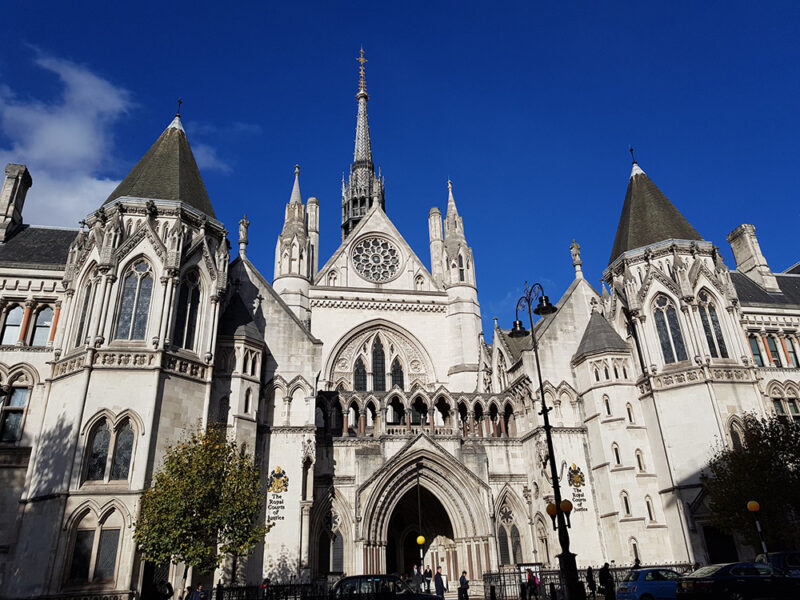
04 Jul UK Arms Exports to Israel: High Court Judgment
On Monday 30 June 2025 the High Court gave its judgment in a judicial review claim regarding UK arms exports to Israel, brought by the Palestinian human rights organisation, Al-Haq. The claimant argued that UK arms exports to Israel were enabling its invasion of Gaza, resulting in serious loss of life and violations of international human rights and humanitarian law.
After the case had begun, on 2 September 2024, the UK government made a new decision suspending licences for UK arms exports to Israel because of the risk of serious violations of international humanitarian law (the laws of armed conflict) by the Israeli armed forces. However, the UK government ‘carved-out’ UK arms exports which contribute to the global supply chain for F-35 fighter jets. Those exports are continuing and F-35 jets have been regularly used in Israel’s actions in Gaza. Al-Haq challenged that decision.
Human Rights Watch and Amnesty International UK made submissions to the court as “Interveners”. They argued that the international law obligation to prevent genocide was engaged as soon as there is a “serious risk” of genocide occurring, and that, once engaged, no ‘carve out’ is permitted.
The High Court ruled on Monday that the legal challenge must fail, and therefore that F-35 exports can continue. This is disappointing for DPG’s clients, Amnesty International UK and Human Rights Watch. However, it is important to emphasise what the judgment is and isn’t saying:
- The Court’s primary reason for refusing the claim was that the UK government’s F-35 exports decision was “not justiciable” i.e. the Court was not willing to ‘second guess’ a decision which involved considerations of high foreign relations and national security policy. This is a contested area, but courts have on occasion declined to rule in cases where the decision under challenge is of this character.
- The Court did not therefore rule that the UK’s decision was lawful in international human rights and humanitarian law. It concluded only that the UK government’s view of these obligations was a “tenable” one. This ‘tenability’ test is also controversial.
- The premise for the claim was a very narrow one, in the view of the Court:
“206. It is important to understand what this case has been about and what it has not been about. It has not been about whether the UK should supply arms or other military equipment to Israel. That decision has been made by the Secretary of State, who has decided, in the September Decision, that it should not. The decision not to supply such arms extends in principle to F-35 components which can be identified as destined for Israel.
- Rather, this case has been concerned with a much more focused issue. That issue is whether it is open to the court to rule that the UK must withdraw from a specific multilateral defence collaboration which is reasonably regarded by the responsible Ministers as vital to the defence of the UK and to international peace and security, because of the prospect that some UK manufactured components will or may ultimately be supplied to Israel, and may be used in the commission of a serious violation of IHL in the conflict in Gaza. Under our constitution that acutely sensitive and political issue is a matter for the executive which is democratically accountable to Parliament and ultimately to the electorate, not for the courts.”
- Any future retreat from the UK government’s position (e.g. to license further arms exports) may well therefore be unlawful, and would require a return to Court. The litigation has shown that such important decisions are proper subjects for judicial review, even when the court declines to rule on a non-justiciability basis.
The Court’s judgment can be downloaded here.
A copy of the written submissions of Amnesty and Human Rights Watch can be downloaded here.
Amnesty International UK and Human Rights Watch are represented by Sue Willman, Daniel Carey and Ahmed Ali of Deighton Pierce Glynn Solicitors. Counsel instructed are Jemima Stratford KC of Brick Court Chambers, Conor McCarthy of Monckton Chambers, Anthony Jones of 4 New Square Chambers and Hugh Whelan of Monckton Chambers.
